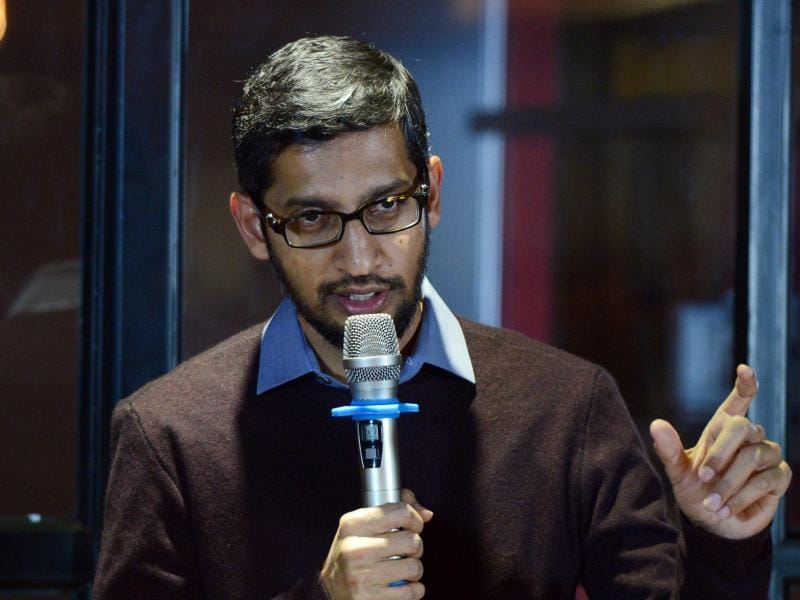In a recent landmark court hearing that captured significant attention from the tech industry and wider public, Sundar Pichai, CEO of Google’s parent company Alphabet Inc., took the stand to defend the tech giant against formidable proposals made by the United States Department of Justice (DOJ). The proposals aimed to address what the DOJ perceives as monopolistic practices that hinder competition in the digital marketplace.
As the courtroom proceedings unfolded, Pichai articulated Google’s position, framing it as a champion of innovation and a facilitator of consumer choice in an ever-evolving technological landscape. The DOJ’s actions stem from a broader investigation into allegations that Google has engaged in anti-competitive conduct, primarily through its dominance in search engines and online advertising.
Understanding the backdrop of the hearing is essential for understanding the stakes involved. The DOJ’s scrutiny aligns with increasing national and international calls for regulation of big tech companies that have amassed vast amounts of user data and leveraged it for significant market power. This has led to concerns not just in the United States but globally, where governments are grappling with how to balance innovation and competition with consumer rights and fair market practices.
During his testimony, Pichai focused on Google’s contributions to the economy, underscoring how the company has made significant investments in technology and infrastructure that benefit not just users but also its competitors. He articulated a vision where Google’s platform acts as a vital tool that enables smaller companies to reach their audience and grow.
Pichai further asserted that the DOJ’s proposals could inadvertently stifle innovation by forcing Google to relinquish control over key aspects of its business. The proposals reportedly include measures requiring Google to divest assets and alter how it operates in various markets, which Pichai argued would adversely affect its ability to invest in new technologies. He raised concerns that such interventions could have a chilling effect on the tech ecosystem as a whole, potentially deterring future investments and innovation at large.
The hearing also delved into Google’s search engine practices, which the DOJ claims give the company an unfair advantage over competitors. Pichai defended the search algorithms that prioritize relevance, asserting that they provide users with the most helpful information and that Google’s practices do not serve to limit competition, but rather enhance user experience.
In addressing the DOJ’s concerns, Pichai highlighted various initiatives by Google aimed at ensuring data protection and maintaining fairness in its advertising business. He mentioned how Google continuously adjusts its services to meet the evolving needs of its users, thereby fostering a competitive landscape. Google’s extensive resources are also directed towards enhancing cybersecurity and protecting user privacy, areas that have become increasingly prominent in discussions about tech regulation.
While Pichai maintained a composed demeanor throughout his testimony, he did not shy away from presenting Google’s accomplishments as vital to American innovation and economic growth. He emphasized how Google’s search engine and advertising platforms have created billions of dollars in economic value, benefitting not only the company but also countless small businesses that leverage its tools for growth.
The implications of this court case extend beyond Google, reflecting broader concerns about the role of big tech companies in society. As these hearings continue, the tech industry is likely to pay close attention, as the outcome could set precedents for how technology companies operate in the future. Factors such as compliance with regulatory frameworks and ongoing scrutiny from governmental authorities might shape the trajectory of innovation and competition within the tech space.
As the legal process unfolds, both sides of the debate will continue to present their cases. On one hand, proponents of stronger regulations argue that increased oversight is necessary to prevent monopolistic practices that could harm consumers. On the other, defenders like Pichai maintain that companies like Google are vital engines of innovation that should not be restrained by excessive regulation that could stifle competition and impede economic development.
In conclusion, Sundar Pichai’s testimony represents not just a defense of Google but also a pivotal moment in the ongoing dialogue about regulation, innovation, and competition in the tech industry. As the court deliberates on the DOJ’s proposals, the outcomes of this case could have lasting implications for the technology sector, influencing how companies navigate the fine line between competition and monopoly in a rapidly changing digital world.



